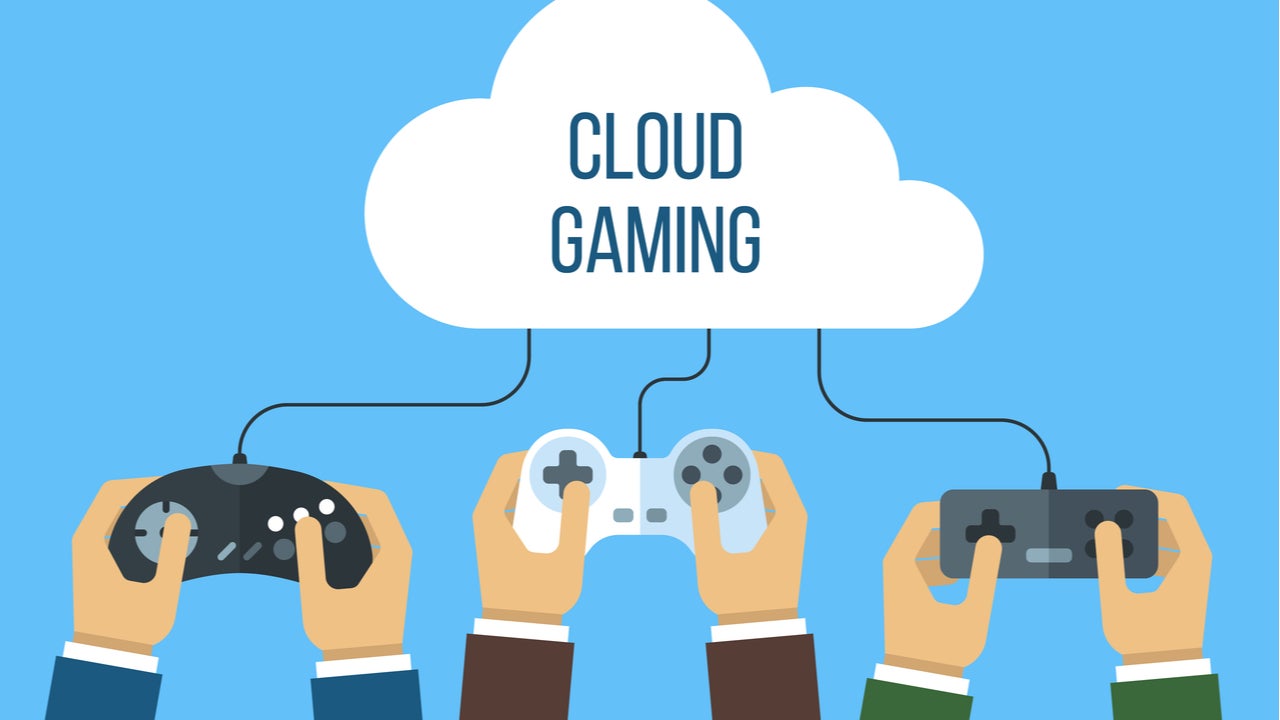Cloud gaming, or gaming on demand, will fundamentally change the video games industry over the next ten years, just as video and audio streaming has reshaped the music, film, and TV industries.
Cloud gaming is a technology that allows video games to be streamed directly from the cloud and played using any device with a display and an internet connection. It uses similar streaming technologies to Netflix and will disrupt how games are distributed, consumed, and monetized. It aims to offer frictionless access to high-end games across multiple devices over a strong internet connection. Thus, cloud gaming’s emergence is a significant threat to games distribution platforms (like Steam, Google Play, and Apple’s App Store) and console makers, particularly Nintendo.
Cloud gaming is still a niche market
Cloud gaming currently makes up less than 1% of the global video games market, according to GlobalData forecasts. Worth $1bn in 2020, it will reach $30bn by 2030, fuelled by the efforts of tech giants (such as Sony, Google, Tencent, Microsoft, Nvidia, Facebook, and Amazon) and telcos (like Deutsche Telekom, Verizon, AT&T, Vodafone, BT Group, KT, and China Mobile). Game publishers like Ubisoft and Electronic Arts are also actively expanding in this developing market.
Cloud gaming’s success will require 5G network availability, attractive games libraries, and reasonable pricing. In 2021, most industry activity will be driven by service providers’ initiatives to identify the best approach for faster growth. Cloud gaming providers and telcos will experiment with 5G in specific geographical locations to improve service quality and experience until 5G becomes widespread.
Subscriptions and advertisements will be the prime revenue channels
Tech giants like Google, Microsoft, Sony, and Nvidia are banking on subscription models to help them become the “Netflix of gaming”. Exclusive content will be critical to attracting customers. Thanks to their massive libraries of exclusive games, Microsoft, Sony, and Tencent are likely winners. Providers of subscription-based cloud gaming services that lack exclusive games will struggle to compete.
Free cloud gaming services, such as the one offered by Facebook, and hourly-payment platforms, like those developed by Loudplay and Paperspace, could attract more users than the likes of Google Stadia if they offer popular games such as Fortnite, League of Legends, PlayerUnknown’s Battlegrounds (PUBG). These games use a freemium model, where basic content is provided for free while access to advanced features requires payment, and are popular with millions of people worldwide. They will help cloud gaming providers to add advertising as a key revenue stream.

US Tariffs are shifting - will you react or anticipate?
Don’t let policy changes catch you off guard. Stay proactive with real-time data and expert analysis.
By GlobalDataFreemium games attract users to cloud gaming services but offer limited revenue prospects to platform providers. Nvidia’s GeForce Now expanded from one million subscribers in February 2020 to four million in August 2020 following its decision to allow users to play popular freemium games like PUBG and Fortnite. However, revenue derived from in-game microtransactions went to the game publishers, while Nvidia only made money from subscriptions. Cloud gaming providers reliant on third-party games will increasingly face this challenge as publishers control their IP to maximize profits.
Most cloud gaming services will adopt either a Netflix-style subscription model, focused on exclusive games, or a YouTube-like ad-based model, based around third-party games and user-generated content. Several incumbent players are well-positioned to use their existing gaming services to boost cloud gaming revenue. For example, Google Stadia and Amazon Luna offer livestreaming services via YouTube and Twitch, respectively, which fetches advertisements on top of subscriptions.









